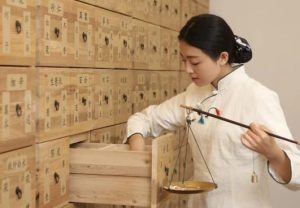Chinese Arborvilae Seed (Bai Zi Ren): What It Is, Benefits, Uses, and Risks

Chinese Arborvilae Seed (Bai Zi Ren, Platycladi Semen) stands at the crossroads of ancient wisdom and modern science.
 Traditional Chinese Medicine (TCM) is a traditional medicine that originated from the Han Chinese people in China and has been practiced for over a thousand years.
Traditional Chinese Medicine (TCM) is a traditional medicine that originated from the Han Chinese people in China and has been practiced for over a thousand years.
When compared with modern Western medicine, it is often classified as traditional medicine. Therefore, the goal of the development of Chinese medicine in the world today is mostly to pursue its own scientific and modernization.
Today, the question of whether Chinese medicine is “scientifically valid” is still a highly controversial issue. We hope to make the facts of Chinese medicine more “clear” based on “scientific facts”.









